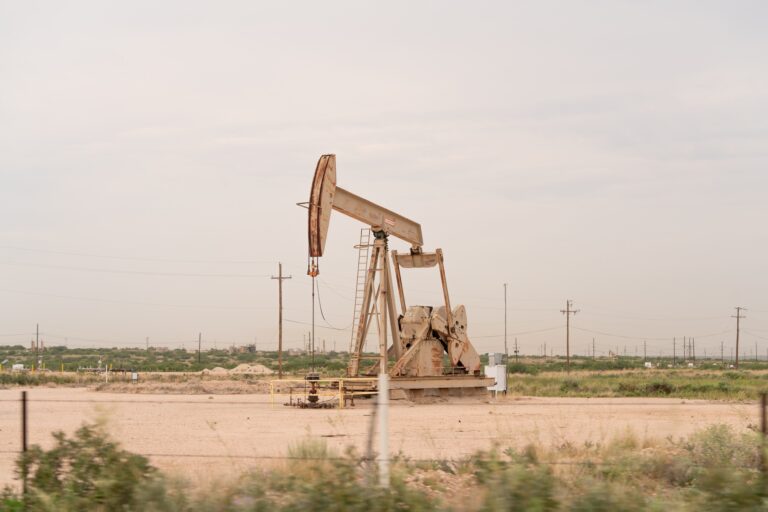Oil and gas fee hike passes as other industry-targeted bills falter in Santa Fe

Adrian Hedden
El Rito Media
achedden@currentargus.com
Lawmakers voted in the final days of this year’s legislative session to raise fees oil and gas companies pay to drill on state land. The session concluded Saturday, March 22, in Santa Fe.
Senate Bill 23, one of the few oil and gas regulatory bills to survive during a session that primarily focused on public safety, was passed on the House floor March 20 on a 37-31 vote.
For the bill to become law, Gov. Michelle Lujan Grisham must sign it by April 11. If the governor takes no action, the bill will be “pocket vetoed.”
SB 23 would increase from 20% to 25% the cap on royalty rates oil and gas operators pay as a percentage of their proceeds from fossil fuels extracted from State Trust land. The higher rates would apply to tracts of State Trust land in the Permian Basin – mostly in Eddy and Lea counties – which the New Mexico State Land Office appraises at the highest value.
The 25% rate would be assessed only on new leases signed after SB 23 becomes law or on older leases that are terminated and re-signed.
Charging the higher rate could increase revenue to the Land Office by between $50 million and $75 million a year, according to an analysis by the Legislative Finance Committee. The Office manages New Mexico State Trust land, holding monthly lease auctions and overseeing other approvals needed to produce energy on state land.
The money generated for the Land Office from such activities is distributed to its statutory beneficiaries, mostly public schools throughout the state.
In reaction to the House’s vote to pass SB 23, State Land Commissioner Stephanie Garcia Richard, who has advocated to raise the rate since she took office in 2019 and paused leasing of the lands in question until such a reform came to pass, said the higher rate was “the right thing to do.”
She said the 25% royalty for Permian Basin land brought New Mexico in line with the rate charged in neighboring Texas, which shares the Permian Basin with New Mexico.
“This is exactly why I ran for this office – to make as much money as possible for school kids and our public institutions,” Garcia Richard said in a statement. “We are finally getting a fair, market value for the public resources that belong to all New Mexicans.”
Republicans continued to oppose the bill during debate on the House floor before SB 23 was passed. Rep. Mark Murphy (R-59) of Chaves County argued the moratorium Garcia Richard placed on the lands subject to the increase delayed revenue to the state of New Mexico, and impeded progress for its key industry.
New Mexico’s oil and gas industry produced about $13 billion in state and local revenue in the last fiscal year, according to the New Mexico Oil and Gas Association, and accounted for about a third of the state’s budget.
Murphy said increased regulations could put that economic boom at risk.
“I would suggest that forgoing 30% of a revenue stream for any period of time in order to receive 5% more just doesn’t really make a lot of sense to me,” he said. “The State Land Office obviously thinks it does.”
Wells subjected to the 25% royalty rate would also likely operate for shorter periods than wells at lower rates that are less expensive to maintain, Murphy argued, “due to common sense economics.”
Rep. Matthew McQueen (D-50) of Santa Fe said the wells in the Permian Basin, where operators would pay the higher rate, would be more productive than others and the higher rate would be worth it to operators.
“These are desirable tracts. These are where oil companies are eager to drill new wells,” McQueen said. “These aren’t exploratory wells. They know what they’re getting into.”
Murphy responded that New Mexico operators, even before the royalty rate is raised, must contend with a higher “tax burden” to drill in the state, compared with Texas.
“New Mexico has one of the highest burdens when you consider taxes and royalties,” he said. “If we continue to add to that burden, it’s going to make our tracts less attractive.”
Oil and gas bills struggle in session
Aside from SB 23, most other bills that would directly impact the oil and gas industry struggled to gain momentum and ultimately ended the session without being approved for Lujan Grisham’s signature.
Senate Bill 4 would have set statewide greenhouse gas reduction targets, putting into law benchmarks set by Lujan Grisham via a 2019 executive order that included a goal of “net zero” emissions by 2050. SB 4 was tabled by the Senate Finance Committee after being passed by the Senate Conservation Committee.
House Bill 35 was intended to set “children’s health protection zones” by requiring oil and gas facilities be at least a mile away from schools and associated facilities. HB 35 passed the House Health and Human Services Committee but was still awaiting a hearing in the House Judiciary Committee as the session ended.
House Bill 258 would codify into law a policy at the Oil Conservation Division created in 2022 to require all oil and gas operators capture 98% of produced natural gas by 2026. That bill passed two House committees but never got a vote on the House Floor.



